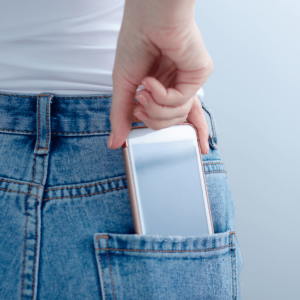In the landscape of clinical trials, electronic capture of patient-reported outcome (ePRO) data has emerged as a superior alternative to traditional paper-based methods. Electronic approaches offer a range of benefits, including improved data quality, reduced errors, and increased efficiency [Contemporary Clinical Trials Communications]. However, the provisioned device (PD) model, where trial sites manage and distribute dedicated devices to participants, comes with its own set of challenges and limitations.
Enter Bring Your Own Device (BYOD), a patient-centric strategy that allows participants to use their personal smartphones or tablets for ePRO data capture. BYOD offers a multitude of advantages that have the potential to revolutionize the eCOA landscape, enhancing patient engagement while simultaneously reducing the logistical and financial burdens associated with provisioned devices.
BYOD for trial participants
Firstly, BYOD prioritizes flexibility and convenience for trial participants. By enabling individuals to complete ePRO assessments on their own trusted devices, which are already seamlessly integrated into their daily lives, BYOD capitalizes on existing habits and behaviors. With the average smartphone user checking their device over 50 times per day, the familiarity and accessibility of personal devices have the potential to boost participant engagement and compliance, as participants clearly prefer it.
BYOD for sites & sponsors
Moreover, BYOD alleviates the logistical challenges and costs associated with provisioned devices. Trial sites are liberated from the burden of storing, tracking, and maintaining device inventories, allowing them to focus on their core responsibilities. Sponsors can realize significant financial savings by eliminating the need to purchase and distribute study-specific devices, which often go unused and wasted in the traditional PD model. With BYOD, sponsors only need to pay for the actual devices being used by participants, rather than an excess of provisioned devices that may never be deployed. This “pay as you go” approach to device provisioning, offered by forward-thinking eCOA providers like Castor, ensures that sponsors are not burdened with unnecessary costs.
Furthermore, trial sites, the key stakeholders in ePRO implementation, are increasingly recognizing the benefits of BYOD. A survey by Haenel et al. revealed that sites with prior BYOD experience tended to prefer it over PD, citing reduced logistical burden and increased participant convenience as major advantages [Contemporary Clinical Trials Communications].
Naturally, the question arises: is data captured via BYOD truly comparable to that obtained through provisioned devices or paper forms? Encouragingly, a growing body of evidence supports the measurement equivalence of BYOD ePRO data. A randomized study by Byrom et al. demonstrated that BYOD yielded comparable results to PD and paper modes across common ePRO response scale types in chronic pain patients [Value in Health]. Similarly, Hudgens et al. found strong measurement comparability between PD and BYOD for daily and weekly assessments in COPD patients over a 15-day period [Journal of Patient-Reported Outcomes].
Taking a flexible approach
At Castor, we firmly believe that BYOD represents the future of eCOA. However, we also understand that sponsors may have varying requirements and preferences. That’s why we offer a flexible approach, supporting both BYOD and PD models. Our “pay as you go” provisioning ensures that sponsors only pay for devices that are actually shipped to patients, eliminating the wasteful expense of unused provisioned devices that plagues many traditional eCOA providers.
As the clinical trials industry strives to enhance patient-centricity and operational efficiency, BYOD emerges as a compelling solution. By harnessing the power of personal devices and leveraging innovative eCOA platforms like Castor’s, we can create a more engaging, streamlined, and cost-effective eCOA process that benefits all stakeholders. The evidence is clear: BYOD offers measurement equivalence to traditional modes while providing tangible advantages for participants, sites, and sponsors. It’s time to embrace this patient-centric approach and usher in a new era of efficiency and engagement in clinical trials.
For more information, follow us on LinkedIn: Castor | Derk Arts
Learn more about Castor ePRO

